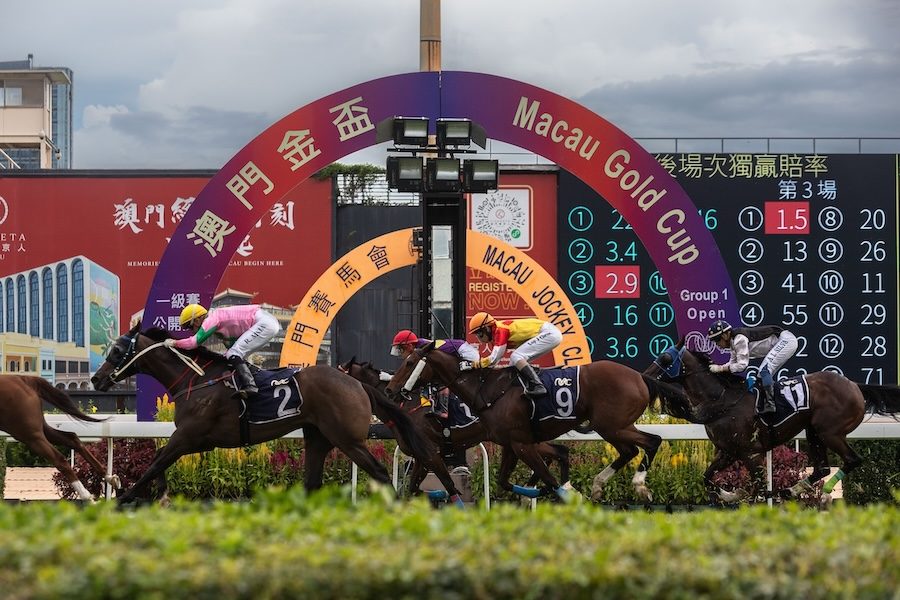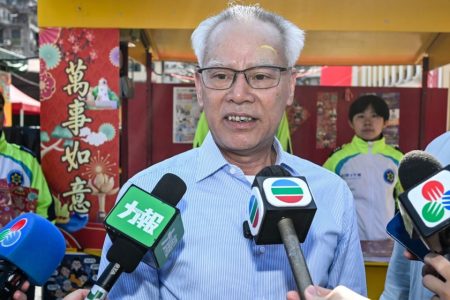On Saturday, 30 March, the Macau Jockey Club (MJC) held its final horse races, marking a significant milestone in the history of Macao and the official end of animal racing in the city. On the club’s last day of races, the MJC bid farewell to a crowd of approximately three thousand racegoers, including both local residents and tourists hailing from Hong Kong and mainland China.
Emotions ran high and tears were shed as attendees shared their sense of sorrow over the club’s permanent closure with Macao News. A significant number of locals from Macao’s community were present, many of whom were first-time attendees eager to witness a final horse race before the club closed its doors for good.
Meanwhile, regular patrons voiced their discontent over the MJC’s decision to charge a 20 patacas entry fee when it had always been free, demonstrated by the fact that tickets themselves were still marked “complimentary”.
[See more: Five things you may not know about the history of the Macau Jockey Club]
The termination of the concession contract amid the 2023-24 racing season was announced by the government last January, when the Secretary for Administration and Justice, Cheong Weng Chon said that the club showed no signs of being able to operate effectively after years of financial difficulties exacerbated by the three-year-long Covid-19 pandemic. He also referenced the fading appeal of the sport with visitors and the public.
The closure of the MJC – headed by the late Stanley Ho’s fourth wife Angela Leong – leaves several racehorse owners, jockeys and stable staff in a dire financial situation, losing their livelihoods. Last January, a government representative noted that there were 254 local residents and 361 foreign nationals working for the MJC at that time, and that they would receive severance pay.
A group of local racehorse owners have since addressed a letter to MJC’s senior officials and the Gaming Inspection and Coordination Bureau, saying that the decision to bring horse racing to an end in Macao had failed to take into account “the feelings of residents and the interests of all horse owners.”
[See more: Macau Jockey Club ‘refuses to compensate’ owners who want to retire their horses]
Racehorse owners are advocating for an improved compensation plan from the MJC. The Club has proposed 200,000 patacas in compensation for each horse sent abroad and 30,000 patacas for horses sent to mainland China.
The government has asked that the 289 horses currently stabled at the club be removed from Macao before the end of March 2025. However, racehorse owners have been told by the MJC to make necessary arrangements for their horses until summer.
Racehorse owners also have the option of transferring ownership of their horses to the MJC, in which case the club will assume responsibility for the expenses associated with those animals.
Reflecting on the club’s past success, Geoff Allendorf, a long-time trainer, remarked that “In the late 1990s we were flying, we had 1,200 horses. At the present time we’ve got 200. That [tells] a story in itself,” he shared in an interview with the HKFP.
On the sidelines of the racetrack on Saturday, Macao News spoke to Ross Lao, a racehorse owner who operates Upper Bloodstock, an equine trading business. Lao is a “part-time racehorse owner.” His horse in Macao is going to retire in Zhoushan (in the Chinese province of Zhejiang), where a friend is building a farm for retired horses. Though Lao will receive a subsidy from the MJC to cover the transportation of the animal to mainland China, it will continue to cost him approximately 5,000 patacas a month to keep the horse at the farm, he told Macao News.
The 44-year-old entrepreneur shared that if he was in charge of running the MJC, he “would have done it properly”. He emphasised the importance of significant investment in the operation, hiring knowledgeable personnel, such as a reputable steward panel and actively promoting horse ownership to ensure the success of an establishment like the MJC. “Then the rest would come,” he said, well aware that the fate of horse racing in Macao has sadly been sealed.
[See more: What will happen to the racehorses after the Macau Jockey Club closes?]
Today was the last full day of operations at the Macau Jockey Club, leaving the fate of its iconic site uncertain. While plans for the venue’s future are yet to be determined, the government has firmly dismissed any possibilities of constructing additional casinos there.
The Macau Jockey Club’s demise leaves Macao’s horses in limbo, eerily reminiscent of the 2021 Yat Yuen Canidrome debacle, where 533 greyhounds were abandoned amidst its closure. As Angela Leong presided over both establishments, her legacy is inevitably stained by the spectre of these repeated failures to protect the animals under her stewardship.



